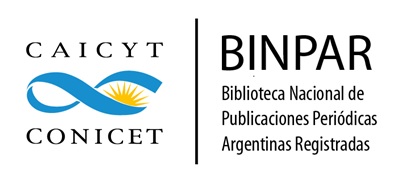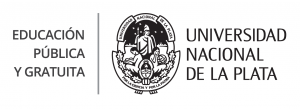Desprejuiciades: let's talk about motor disability and socio-affective bonds
Keywords:
Communication and functional diversity, communication and disability, disability and networks, community, human rights, socio-affective links, integral sexualityAbstract
In this paper I present the scope of the production "Desprejuiciades", as a discursive space that seeks, from a rights perspective, to make visible and problematize the stereotypes, prejudices and practices that deny to Persons with Disabilities (PwD) the possibilities of generating socio-affective links and the recognition of the different stages of life.
"Desprejuiciades", a space where functional diversity and sexuality are compatible, is the result of a personal and collective process that was the corollary of the TIF degree that we made together with my ISER Extension colleagues, Lucas William Gould and Lorena Matus, with the purpose of promoting a look towards PwD that allows us to conceive them as subjects of political and sexual rights. "Desprejuiciades" is a digital media designed to break down taboos about the construction of their sexualities and socio-affective links.
The web portal has derived social networks (Facebook profile, Twitter and Instagram and YouTube channel), together, they propose a social transformation in the look towards PcD. A look that, as proposed by the social model of disability, thinks about the experiences of PwD in an interdisciplinary way, taking into account the subject as part of a particular socio-historical period in which social class, gender and sexual orientation, among other dimensions, will affect their experiences in relation to disability.
Downloads
References
Barone, A.; Gould, L.; William; Matus, L. (2020). “Desprejuiciades”. [TIF de grado ]. La Plata, Buenos Aires, Argentina: FPyCS-UNLP. Recuperado de http://sedici.unlp.edu.ar/handle/10915/106786 (consultado en junio 2021)
Butler, J. (noviembre 2009). “El papel de la ideología de la normalidad en la producción de discapacidad”. En Revista Ciencia, Docencia y Tecnología, Nº 39, noviembre de 2009, pp. 87-105.
Canal de YouTube “Desprejuiciades” Recuperado de https://www.youtube.com/channel/UC3AEGCtEbr8oI0ZZaDN2SaA/ (consultado en junio 2021)
Fan Page “Desprejuiciades”. Recuperado de https://www.facebook.com/Desprejuiciades/ (consultado en junio 2021)
Goffman, Erving. (2009). Estigma: “La identidad deteriorada” 2da. Edición. Madrid, España: Amorrortou Editores.
ONU (2006). Convención sobre los Derechos de las Personas con Discapacidad. Recuperado de un.org/esa/socdev/enable/documents/tccconvs.pdf
Perfil de Instagram “Desprejuiciades”. Recuperado de https://www.instagram.com/desprejuiciades/
Perfil de Twitter “Desprejuiciades”. Recuperado de https://twitter.com/desprejuiciades/
Portal web “Desprejuiciades”. Recuperado de https://desprejuiciades.com.ar/
Reznik, L. (julio 2006). “IV Jornadas Nacionales Universidad y Discapacidad”, Facultad de Derecho de la Universidad de Buenos Aires (UBA).
Rincón, O. (2006). Narrativas mediáticas. O cómo se cuenta la sociedad del entretenimiento. Barcelona, España: Ed. Gedisa.
Silverstone, Roger (2001). ¿Por qué estudiar los medios? Buenos Aires, Argentina: Ed. Amorrortu.
Velarde Lizama, V. (2012). “Los modelos de la discapacidad: un recorrido histórico”. En Revista Empresa y Humanismo Universidad de Navarra, Vol. XV, N° 1, p. 115-134.
Downloads
Published
How to Cite
Issue
Section
License
Copyright (c) 2021 Analía Alejandra Barone

This work is licensed under a Creative Commons Attribution-NonCommercial-ShareAlike 4.0 International License.
La aceptación de un original por parte de la revista implica la cesión no exclusiva de los derechos patrimoniales de los/as autores/as en favor del editor, quien permite la reutilización, luego de su edición (postprint), bajo una Licencia Creative Commons Atribución-NoComercial-CompartirIgual 4.0 Internacional (CC BY-NC-SA 4.0)
Acorde a estos términos, el material se puede compartir (copiar y redistribuir en cualquier medio o formato) y adaptar (remezclar, transformar y crear a partir del material otra obra), siempre que a) se cite la autoría y la fuente original de su publicación (revista y URL de la obra), b) no se use para fines comerciales y c) se mantengan los mismos términos de la licencia.
La cesión de derechos no exclusivos implica que luego de su edición (postprint) en Actas de periodismo y comunicación las/os autoras/es pueden publicar su trabajo en cualquier idioma, medio y formato; en tales casos, se solicita que se consigne que el material fue publicado originalmente en esta revista.
Tal cesión supone, también, la autorización de los/as autores/as para que el trabajo sea cosechado por SEDICI, el repositorio institucional de la Universidad Nacional de La Plata, y sea difundido en las bases de datos que el equipo editorial considere adecuadas para incrementar la visibilidad de la publicación y de sus autores/as.
Asimismo, la revista incentiva a las/os autoras/es para que luego de su publicación en Actas de periodismo y comunicación depositen sus producciones en otros repositorios institucionales y temáticos, bajo el principio de que ofrecer a la sociedad la producción científica y académica sin restricciones contribuye a un mayor intercambio del conocimiento global.






















